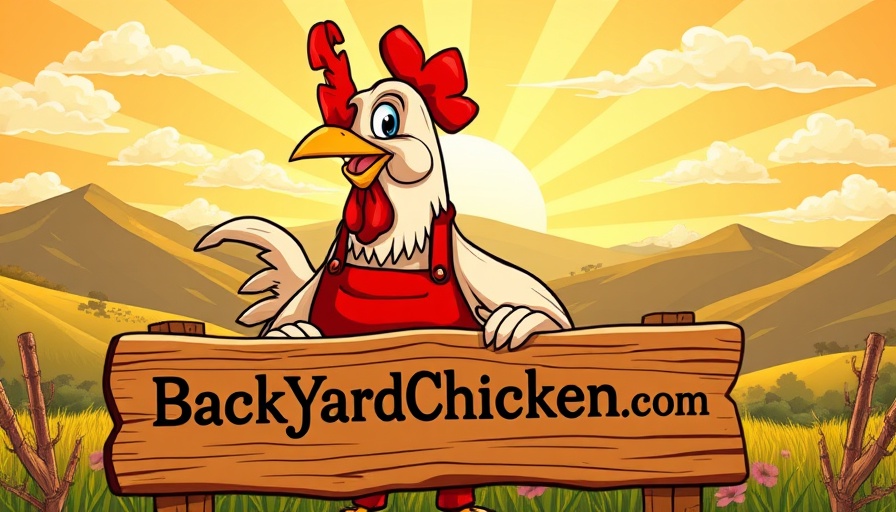
As the interest in sustainable living surges, many newcomers are embracing the joy of raising backyard chickens. This rewarding pursuit not only provides fresh eggs but also fosters a deeper connection to nature and heightened responsibility toward animal welfare. If you're contemplating starting your own chicken coop, it's crucial to be equipped with the right knowledge and resources.
Understanding Local Regulations: The First Step to Chicken Raising
Before integrating a flock into your backyard, investigate your local laws surrounding chicken keeping. Regulations can vary widely, dictating the permissible number of chickens, coop specifications, and even zoning requirements. Engaging with local authorities or your homeowners association can clarify what is allowed in your area, ensuring a smooth chicken-raising experience.
Choosing the Right Breeds: Tailoring Your Flock
Just as there are diverse landscapes, so too are there various chicken breeds to consider. Factors like egg production, temperament, and hardiness against local climates should guide your choices. Popular beginner-friendly breeds include Rhode Island Reds and Leghorns, known for their adaptability and reliability in egg-laying.
Investing in Proper Housing: Safety and Comfort Matter
Your chickens require a safe and comfortable living environment. A well-constructed coop not only protects them from predators but also provides adequate ventilation and space. Consider integrating nesting boxes and roosting bars into the design, catering to their natural behaviors and needs.
Routine Care: Beyond Feeding and Watering
Caring for chickens extends far beyond daily feeding and watering. Health checks are essential, as chickens can be susceptible to diseases. Regular cleaning of the coop reduces the risk of infections, such as Salmonella, which poses a health threat not only to the birds but also to humans. Establishing a routine will help maintain a healthy environment for your flock.
Community Engagement: Learning from Experienced Keepers
Connecting with local or online chicken-keeping groups can provide invaluable support, tips, and shared wisdom. These networks can also serve as a forum for discussing issues that may arise, from illness management to behavioral problems, creating a community of learning and support among fellow chicken enthusiasts.
As you embark on this exciting journey of poultry farming, remember that the most fulfilling aspects come from understanding and engaging with your chickens. They are not just pets but part of a larger ecosystem that benefits from your care and commitment. Each step you take in preparing and maintaining your chicken coop represents a chance to learn, grow, and contribute to a sustainable lifestyle.
 Add Row
Add Row  Add
Add 




Write A Comment